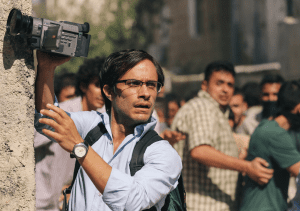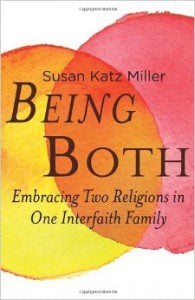 |
|
And now, President Cheney
|
For the angrier among you, it might be difficult to approach director Gabriel Range’s controversial new film Death of a President (or D.O.A.P, if you will) without a bit of schadenfreude. After all, it depicts with strong realism (though no bloodshed) the fictional assassination of President George Bush in Chicago in October, 2007. But as the film takes pains to demonstrate after the assassination scene (itself over by 20 minutes into the film), you’d be wrong to do so.
After its premiere at the Toronto International Film Festival in September, where it won the International Critics prize, the film’s premise sparked controversy in the States with more conservative pundits and politicians of all stripes characterising it as nothing more than a leftist, Islamist fantasy. Despite securing US distribution rights at the festival, two major cinema chains, representing 2,500 and 6,300 theaters respectively, have refused to show it, citing the “inappropriateness” of depicting the assassination of a sitting president (presumably January 21, 2009 would be acceptable). Nevertheless the distributor, Newmarket Films, has committed themselves to as wide a release as possible in mostly independent theaters. Having also distributed The Passion of the Christ, it seems likely that more than a few will be able to see what the fuss is about.
D.O.A.P. is filmed in a faux documentary style and shown from a point of view 3 years after the event itself, creatively using archival footage to assemble events as they might have occurred in real life. This means CGI grafting of President Bush’s head onto an actor for the assassination scene and morphing newly sworn-in President Dick Cheney’s mouth in an otherwise real Rotunda eulogy (the Presidents are the only figures manipulated for the film). However, due to its linear construct, details are revealed slowly and methodically through news bulletins and interviews with FBI officials, government spokesmen, and families of the suspects. The result is a kinetic drama that has the believability (relative, of course) of reality TV. In an age of mass-market socio-political documentaries like Fahrenheit 9/11 and Super Size Me, there is an instant connection to the plot. The film even references a North Korean nuclear test, an event that occurred barely two weeks ago.
As President Cheney is sworn in after the assassination, a frenzied search for the suspects begins. Once the sniper’s probable location is found, everyone remotely connected to it is rounded up, as are others from the anti-war demonstration that occurred nearby. Retrospective interviews with the suspects detail the line of investigative thinking, some of it reasonable, elsewhere disjointed and irrational. The detention of an anti-war protester appears punitive. The media begins to fan the flames with leaks, conjecture, and sensationalism. Sound familiar?
Of note in this movie is the sympathetic treatment of Muslims, with a portrayal built from the experiences of Muslims in the US after September 11th. One young American-raised Yemeni outlines how his immigrant father was rounded up in the aftermath and deported on flimsy visa issues, echoing the very real mass detentions, deportations, and disappearances of Muslims in America in the past five years without any links to terrorism. Another, a Syrian immigrant, Jamal Abu Zikri, becomes caught up in circumstance and soon becomes the prime suspect, held on circumstantial evidence as in many other notable post-9/11 cases where connections are made (quite literally) to Al Qaeda.
In one scene, Jamal’s wife Zahra speaks in fluent Arabic about her feelings after the shooting, saying that she “prayed to God that Muslims weren’t involved.” It not only echos the sentiments of many Muslims in the moments immediately after the 9/11 attacks occurred, but points to the futility of endorsing such acts in the first place, in that they only serve to strengthen the foreign and domestic policies that many Muslims and justice-minded citizens oppose. As the repurcussions of the assassination slowly make themselves felt in the movie, it’s hard to argue that the film – or Muslims in general – would consider such a thing constructive or desirable. With the fallout from 9/11 now including over 650,000 dead in Iraq, there is in real life a parallel feeling of dread.
The climax, though poignant, is understated and ultimately inconsequential. What D.O.A.P. strives to demonstrate is that the current policies and temperament of the Bush administration goes far beyond the man himself. Bush’s assassination is treated as another 9/11, both in terms of tragedy (which it is undeniably portrayed as and certainly would be) and opportunity. The Syrian connection is pounced on as an excuse for regime change. A “Patriot 3” act is railroaded through Congress. Inconvenient truths are swept under the rug and innocents suffer. President Bush is gone, but the newly strengthened system marches on. Don’t hate the player, folks. Hate the game.
It’s notable that British production teams were involved with this film, along with another recent notable (and real) documentary, The Power of Nightmares. Both illustrate far greater nuance and comprehension in detailing the patterns of asserting American influence in the world and on its own citizens, making the aforementioned Fahrenheit 9/11 seem relatively shallow and singularly focused. If the drive to suppress this film could be construed as a few more connected dots in their scenarios, we may have to consider more carefully the strength of their arguments.
Death of a President premieres in US cinemas (minus Regal and Cinemark) on October 27th. It will also be released on DVD in the UK on October 30th.
Zahed Amanullah is associate editor of altmuslim.com. He is based in London, England.











